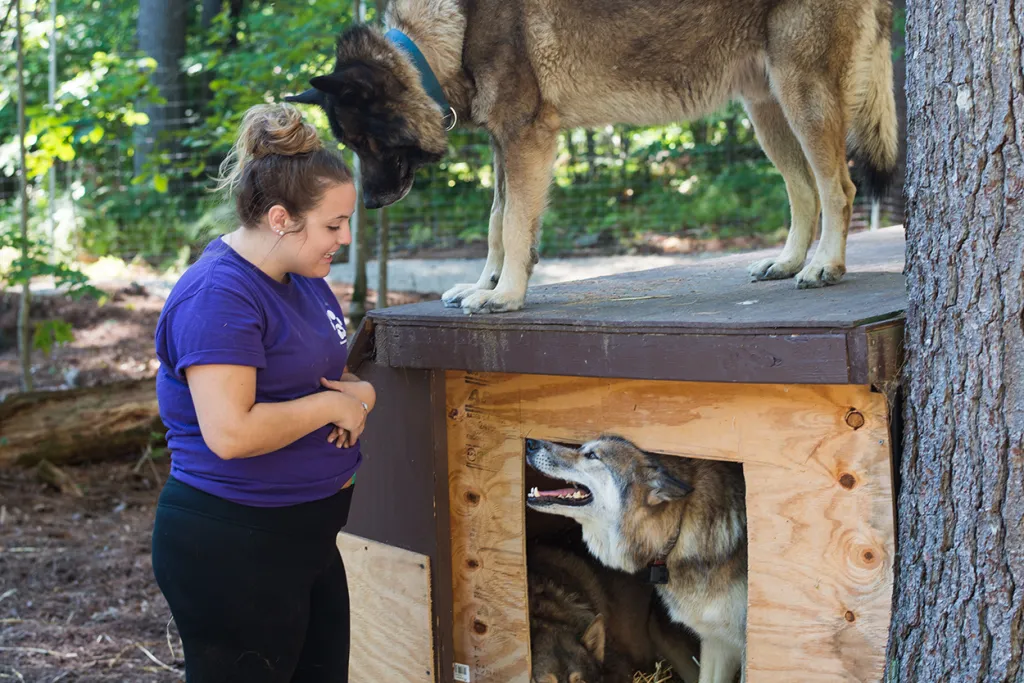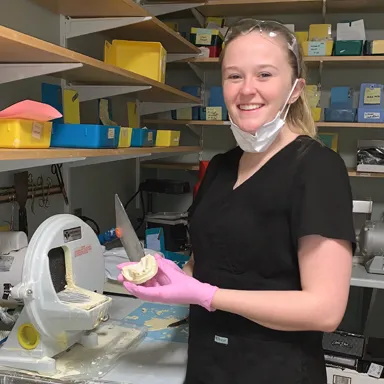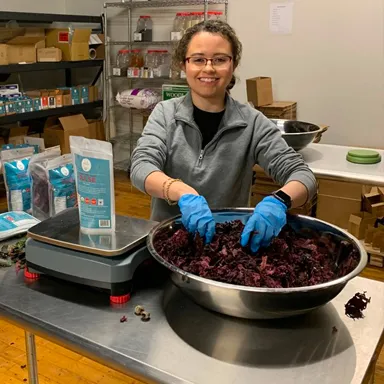What is an Internship?
An internship is a learning adventure, a passport to a professional experience, and an opportunity for you to synthesize what you’ve learned in your classes and put it into practice in a real-world setting. But it’s much more than that — an internship takes you outside of the classroom and gives you the chance to gain first-hand experience of your career path. It’s a chance for you to grow your perspective, hone your academic and professional skills, and solidify your vision of the future.
Where to Start
Your first step in the internship process is to activate your UNE support team.
- Talk to your professional or academic advisor about your career interests and how an internship can help you connect the dots.
- Make an appointment with UNE’s Internship Coordinator to identify internship opportunities, begin the application process, and make sure you’re prepared to gain from your experience.

Benefits You Can Count On
Participating in an internship as an undergraduate student can be a game changer for your academic and professional journey. It provides you with a unique opportunity to apply your knowledge in a real-world setting and allows you to gain invaluable insights, skills, and connections that can significantly impact your future career. Through internships, you'll develop a deeper understanding of your field, discover your strengths and interests, and enhance your problem-solving abilities. Moreover, you'll have the chance to network with professionals in your chosen industry, potentially leading to mentorship opportunities and future job offers.
Hands-On Learning and Networking
Some of the many benefits of completing an internship include:
- Hands-On Learning: Apply classroom knowledge in a real-world setting.
- Skill Development: Build career competencies while gaining practical skills and experience.
- Career Clarity: Discover your strengths and interests within your field.
- Networking: Connect with professionals in your chosen industry.
- Mentorship: Potential opportunities for mentorship.
- Resume Enhancement: Boost your resume with relevant experience.
- Career Opportunities: Increase your chances of securing future job offers.
Whether you're seeking to boost your resume, clarify your career goals, or gain a competitive edge, an internship is your gateway to personal and professional growth.
Experience a Pre-Med Internship at a Local Hospital
Where and when you can do an internship
At UNE, we believe in empowering our students right from the beginning of their academic journey. That's why we offer internship opportunities starting from your first year. Whether you're seeking local experience to balance your studies or want to explore regional, national, or global opportunities, we've got you covered. Our extensive network of relationships spans every sector, including businesses, corporations, non-profit organizations, and government agencies. So when it comes to choosing when and where to embark on your internship adventure — the possibilities are endless.
Early internships allow you to apply classroom knowledge, gain practical skills, and build a strong foundation for your future career, ensuring that you graduate not just with a degree, but with the experience and confidence to succeed in your chosen field.

Biological Sciences major Emily Morris interns as a dental assistant with the Kennebunk Center for Dentistry in Kennebunk, Maine.

Medical Biology student Ethan Gagnon interns as part of the COVID-19 Vaccination Initiative at Maine Medical Center-UNE in Portland, Maine.

Marine Affairs major Julia Basantes interns as a production assistant with Ocean’s Balance in Biddeford, Maine.
Paid Internships
At UNE, we recognize that the financial aspect of an internship is a top concern for students. The good news is that many internship opportunities are paid or provide stipends. These paid internships not only allow you to gain valuable hands-on experience but also help you offset some of your educational expenses. We understand that financial considerations are important, and our team of professionals is dedicated to helping you find paid opportunities whenever possible. Whether you’re considering a paid or unpaid internship, we’re committed to helping you secure an experience that will help you make the most of your academic journey.
Credit-Bearing Interships
Many internships can be taken for credit, and in fact, an internship experience is likely part of the required coursework in your major. This means that your internship can count towards your degree requirements, providing a seamless integration of real-world experience with your academic curriculum. Our dedicated advisors and faculty work closely with you to tailor the internship experience to align with your academic and career goals, ensuring that you maximize the benefits of your internship while earning credits towards your degree. It's a win-win opportunity that combines practical learning with academic achievement.
